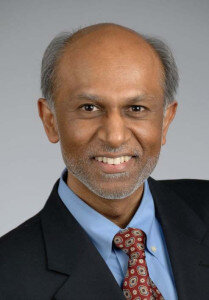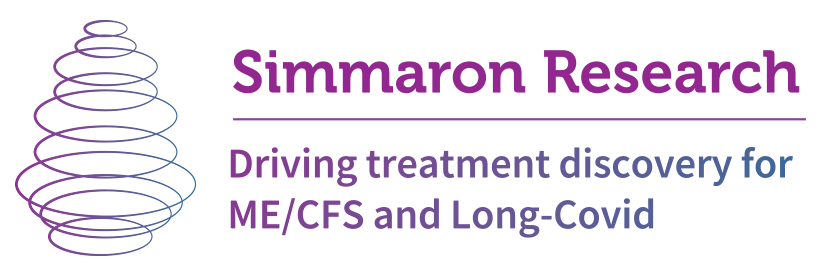Hear More on Tuesday about NIH study during CDC’s Grand Rounds
 On Tuesday, February 16, at 1:00 East, Dr. Avindra Nath, the Principal Investigator of NIH Clinical Center’s study of post-infectious ME/CFS, will make a presentation about the first intramural study of our disease in 20 years. This is a well-timed opportunity for patients to hear Dr. Nath describe the study in some detail. (Webcast link is on this page, right hand side: http://www.cdc.gov/cdcgrandrounds/ )The study at the NIH Clinical Center is designed around a subset of patients with post-infectious onset, similar to recent studies led by Drs. Ian Lipkin and Mady Hornig at Columbia University, studies Simmaron knows well as a collaborator. It is part of a renewed commitment to research ME/CFS announced by NIH Director Dr. Francis Collins in October, when he talked about an intramural study on patients who became ill following an infection.We encourage patients to watch the webcast of the CD
On Tuesday, February 16, at 1:00 East, Dr. Avindra Nath, the Principal Investigator of NIH Clinical Center’s study of post-infectious ME/CFS, will make a presentation about the first intramural study of our disease in 20 years. This is a well-timed opportunity for patients to hear Dr. Nath describe the study in some detail. (Webcast link is on this page, right hand side: http://www.cdc.gov/cdcgrandrounds/ )The study at the NIH Clinical Center is designed around a subset of patients with post-infectious onset, similar to recent studies led by Drs. Ian Lipkin and Mady Hornig at Columbia University, studies Simmaron knows well as a collaborator. It is part of a renewed commitment to research ME/CFS announced by NIH Director Dr. Francis Collins in October, when he talked about an intramural study on patients who became ill following an infection.We encourage patients to watch the webcast of the CD C Grand Rounds to hear directly from Dr. Nath. He is an infectious neurologist, with experience ranging from AIDS and HIV to studying many infectious agents in collaboration with Dr. Lipkin’s Center for Infection and Immunity.The CDC Grand Rounds presentation is made to a broad audience of doctors and practitioners throughout the medical community. This event is focused on ME/CFS (for the first time) to educate medical professionals about the new IOM diagnostic criteria, have them hear from expert clinician Dr. Charles Lapp, and describe the NIH's intramural study. Organized by CDC's Dr. Elizabeth Unger, we also look forward to hearing data describing the physical severity of the disease from the CDC's multi-site clinical study, in which Simmaron and other expert clinics are participating.Last weekend, a draft protocol for the NIH intramural study was posted which did not completely describe the selection criteria. While it was clear about enrolling patients that developed the disease following an acute infection, it mentioned use of Reeves criteria, which raised concerns among patients.
C Grand Rounds to hear directly from Dr. Nath. He is an infectious neurologist, with experience ranging from AIDS and HIV to studying many infectious agents in collaboration with Dr. Lipkin’s Center for Infection and Immunity.The CDC Grand Rounds presentation is made to a broad audience of doctors and practitioners throughout the medical community. This event is focused on ME/CFS (for the first time) to educate medical professionals about the new IOM diagnostic criteria, have them hear from expert clinician Dr. Charles Lapp, and describe the NIH's intramural study. Organized by CDC's Dr. Elizabeth Unger, we also look forward to hearing data describing the physical severity of the disease from the CDC's multi-site clinical study, in which Simmaron and other expert clinics are participating.Last weekend, a draft protocol for the NIH intramural study was posted which did not completely describe the selection criteria. While it was clear about enrolling patients that developed the disease following an acute infection, it mentioned use of Reeves criteria, which raised concerns among patients. A couple days later, Dr. Nath and NINDS Director Dr. Walter Koroshetz provided important clarifying information to Bob Miller and me, especially noting that enrollees will need to meet the Canadian Consensus Criteria and have Post Exertional Malaise. They said additional information will be posted on a website for patients and the community in the coming week. We wanted to reiterate them here for patients who are able to watch the webcast.We asked questions about the criteria for enrollment, reference to Reeves criteria in the draft protocol, role of ME/CFS experts and the choice of control groups. According to the principal investigator of the study, Dr. Nath:
A couple days later, Dr. Nath and NINDS Director Dr. Walter Koroshetz provided important clarifying information to Bob Miller and me, especially noting that enrollees will need to meet the Canadian Consensus Criteria and have Post Exertional Malaise. They said additional information will be posted on a website for patients and the community in the coming week. We wanted to reiterate them here for patients who are able to watch the webcast.We asked questions about the criteria for enrollment, reference to Reeves criteria in the draft protocol, role of ME/CFS experts and the choice of control groups. According to the principal investigator of the study, Dr. Nath:
- Enrollees will meet all definitions for ME/CFS, including Canadian Consensus Criteria, IOM, Fukuda and Reeves, in addition to post-infectious onset.
- Post-exertional malaise (PEM) is a criteria, and will be specifically studied with extensive testing before and after exercise challenge.
- Dr. Ian Lipkin of Columbia University's Center for Infection and Immunity has been advising the investigators on the study design and protocol.
- Expert clinicians will be used in patient selection, including those participating in recent multi-site studies of ME/CFS. This information was also learned separately by MEAction.
- Control groups: Asymptomatic Lyme was chosen to contrast post-infectious ME/CFS patients to patients who recovered from an infection. Functional Movement Disorder was chosen to contrast post-infectious ME/CFS patients with a very well-studied group of patients with clear psychological illness with neurological presentation.
- They seek to have 40 PI-ME/CFS patients, and they will study them longitudinally, hoping to learn how and whether the disease changes over time.
- Testing will be extensive.
Personally, Bob and I are very excited to know that the NIH intramural study is moving forward, and that it will deeply study patients with infectious onset against a battery of biological tests. We are reassured by these details, and eager to have this kind of data to move our disease toward discovery.The webcast is at 1:00 Eastern Time, Tuesday February 16, and the link to view the webcast is here: http://www.cdc.gov/cdcgrandrounds/
